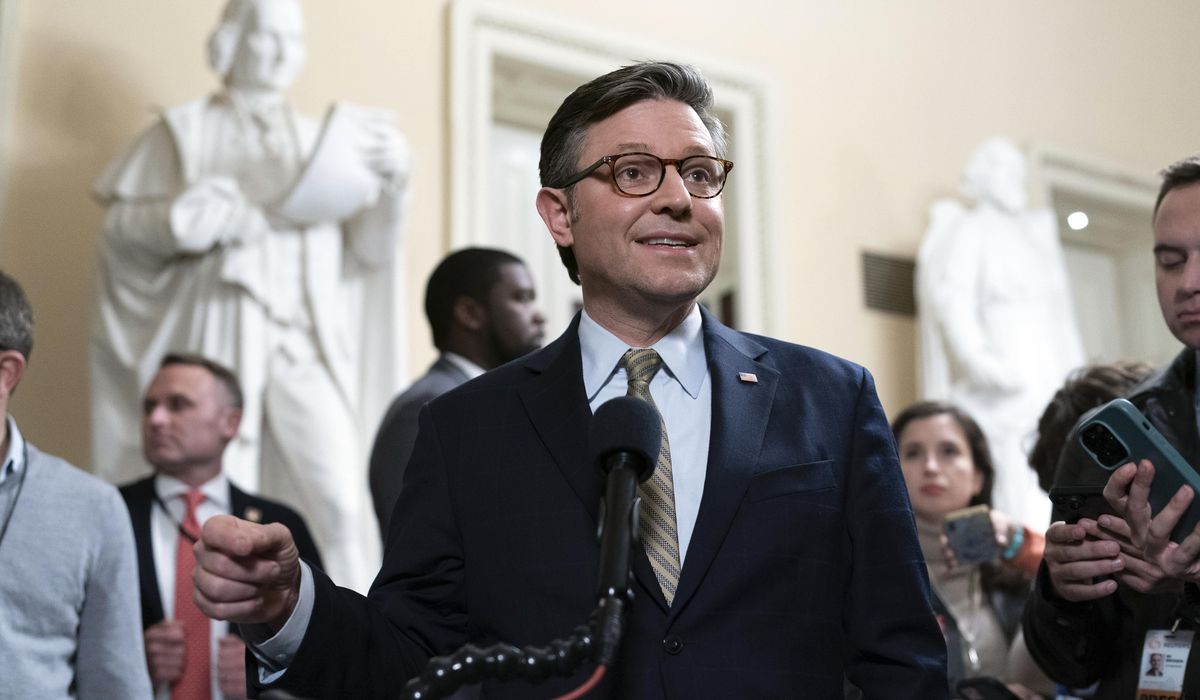


House Speaker Mike Johnson wants to include one of President-elect Donald Trump’s top priorities inside a colossal border and tax bill, a debt limit hike that will be hard to draw Republican support.
Mr. Johnson, Louisiana Republican, told reporters during the GOP’s weekly press conference on Monday that it was his “intention” to include a hike to the nation’s debt limit in the budget reconciliation process, the legislative vehicle where much of Mr. Trump’s agenda will live.
Lawmakers could try to tackle the debt limit as a separate standalone bill, like Congress did in 2023 when former Speaker Kevin McCarthy and President Biden landed on a deal to extend the debt limit until this year, but Mr. Johnson argued that as “the party in charge of both chambers,” dealing with the debt limit in reconciliation would let the GOP hammer out a plan without Democrats.
“We feel like we’re in a better stead to do it ourselves,” Mr. Johnson said.
But tackling the issue will be tricky for the speaker, with many debt hawks and members of the House Freedom Caucus initially opposed to tacking on trillions to the nation’s debt without steep spending cuts.
Indeed, 38 Republicans rejected the initial pitch to extend the debt limit by two years, which was part of a slimmed-down government funding extension brought to the floor last month.
Following that bill’s failure, House Republicans and key Trump advisers agreed to a tentative plan to use the reconciliation process to raise the debt limit by $1.5 trillion while cutting spending by $2.5 trillion, but Mr. Johnson noted that the “final number” has yet to be hashed out since that handshake agreement.
The speaker called the debt limit issue one the most important problems facing this Congress and argued that with a trifecta in Washington, the GOP’s mission is to “reduce the size and scope of government” and to “reduce spending in a meaningful way,” and that addressing the debt limit was crucial.
“Raising the debt limit is a necessary step so that we don’t get the appearance that we’re going to default in some way on the nation’s debt,” he said. “But that does not mean that we have any intention whatsoever or will tolerate spending up to the new debt limit; the idea is to do exactly the opposite.”
• Alex Miller can be reached at amiller@washingtontimes.com.
